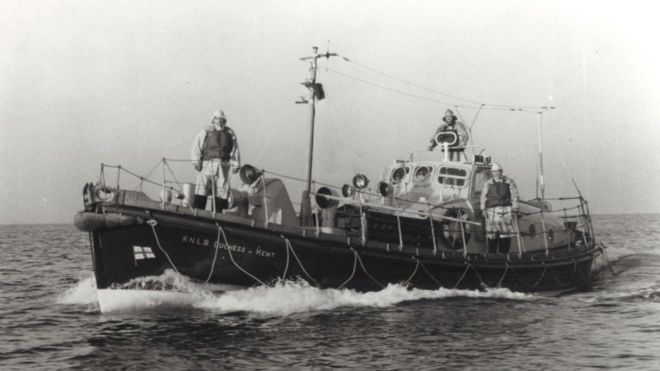Remembering a brave Scottish lifeboat crew who lost their lives 50 years ago
The bravery of the lifeboat crews who face danger on the seas surrounding the Celtic coasts, or indeed anywhere, to save lives can never be underestimated. Lifeboat crews put their lives at risk in often perilous conditions in their aim to prevent loss of life. Sadly over the years lifeboat crews have lost their lives during acts of outstanding bravery. One such event was on this date, 21st January, in 1970 when five Royal National Lifeboat Institution (RNLI) volunteers died in the Fraserburgh lifeboat disaster. Fraserburgh (Scottish Gaelic: A' Bhruaich) is a coastal town in the northeast of Scotland.
It was fifty years ago that the the crew had gone to the rescue of a Danish fishing boat with four people on board which had sprung a leak off the Aberdeenshire coast. In appalling gale-force conditions the lifeboat was overturned by a freak wave while escorting the stricken fishing vessel to safety. Five of the six men on the lifeboat lost their lives. Coxswain John Stephen, the town's assistant harbourmaster; Fred Kirkness, the lifeboat's engineer; William Hadden, a Customs and Excise officer; fishworker James Buchan and toolworker James Buchan. Sole survivor Jackson Buchan, who found himself on the surface, hauled himself on to the keel until he was rescued. The joint funeral of those who perished was attended by 13,000 people. A memorial service has been held this week in Fraserburgh for the five RNLI volunteers who died.
This was not the first time that Fraserburgh lifeboats crews had faced tragedy. In 1919 the Lady Rothes capsized about a mile from land killing two of the crew. Then in 1953 the John and Charles Kennedy capsized at the harbour entrance, after escorting two fishing vessels to safety. However, new volunteers came forward to offer their services and still do. Established in 1858, Fraserburgh was the first RNLI station in Scotland. It operates from the rugged north-east coast and the crews have been honoured with 16 awards for gallantry. The Royal National Lifeboat Institution (RNLI) is a charity that saves lives at sea around the coasts of Ireland, Scotland, Isle of Man, Wales, Cornwall as well as the Channel Islands and England. Founded in 1824 as the National Institution for the Preservation of Life from Shipwreck, its name subsequently changed to the Royal National Lifeboat Institution. The Institution is extremely highly regarded for the work it undertakes in often treacherous conditions and the bravery of its crews. Motivated by the selfless aim to save lives, it has saved some 140,000 lives since its foundation, at a cost of more than 600 lives lost in service.






